Home » Sweden Brokerage Account
Sweden
Popular Online Brokerage Accounts
Selecting the right brokerage account is an essential step in managing your investments effectively. This page outlines key features, fees, and available options to help you compare brokerage providers in Sweden and choose an account that aligns with your financial goals.
Understanding Brokerage Accounts in Sweden
A brokerage account is a financial tool that allows individuals in Sweden to invest in assets such as stocks, bonds, mutual funds, and ETFs. These accounts are provided by brokerage firms that connect investors to both domestic and international markets. Whether you are planning for long-term savings, building wealth, or engaging in short-term trading, a brokerage account offers the flexibility to manage your investments in a way that aligns with your financial goals.
How Brokerage Accounts Work in Sweden
When you open a brokerage account in Sweden, you deposit funds that can be used to invest in a wide range of financial instruments. Brokerage firms facilitate these transactions and may charge fees or commissions, though some offer commission-free trading on specific products. Swedish investors can also benefit from tax-advantaged options such as ISK accounts (Investeringssparkonto), which simplify taxation for investments, or Kapitalförsäkring (KF) accounts, which are commonly used for long-term savings. Understanding the features and tax implications of different account types is an important step in selecting the right brokerage account.
Key Features to Consider
Choosing the right brokerage account in Sweden requires evaluating several factors beyond just fees. Here are some important considerations:
- Fees and Costs
While many Swedish brokers offer commission-free trading for certain products, additional charges such as account maintenance fees, currency exchange fees, or withdrawal fees may apply. Understanding the full cost structure is essential to avoid unexpected expenses. - Investment Options
Brokerage platforms in Sweden vary in the types of investments they provide access to, including Swedish and international stocks, bonds, ETFs, mutual funds, and alternative assets. Make sure the platform supports the investment types you are interested in. - Trading Tools and Platforms
The usability of a brokerage platform can greatly impact your experience. For beginners, simplicity and clear navigation are key, while experienced investors may require advanced features like real-time market data, analytical tools, and customizable trading interfaces. - Account Types
Swedish investors can choose from several account types, such as standard taxable accounts or tax-advantaged options like Investeringssparkonto (ISK) or Kapitalförsäkring (KF). Each has unique tax benefits and rules, so it’s important to select the one that best aligns with your investment strategy. - Customer Support and Educational Resources
Many brokers in Sweden provide robust customer support, along with educational materials such as webinars, guides, and tutorials. These resources can be valuable, especially for new investors or those navigating complex investment decisions.
Regulatory Protections for Brokerage Accounts in Sweden
Swedish brokerage accounts are regulated by the Swedish Financial Supervisory Authority (Finansinspektionen), which ensures that brokerage firms operate transparently and adhere to strict guidelines designed to protect investors. This regulatory oversight promotes trust in the financial markets and safeguards investors’ interests.
Additionally, Swedish investors are protected by the Investor Compensation Scheme (Insättningsgarantin), which offers compensation in the event of a brokerage firm’s insolvency. This scheme covers up to SEK 1,050,000 for cash and securities. However, it is important to note that this protection does not cover investment losses caused by market fluctuations or individual trading decisions.
Important Note
Before opening a brokerage account, it’s crucial to verify all terms, fees, and features directly with the provider. While this page aims to present accurate and up-to-date information, brokerage policies and offerings can change over time. Confirming the details with the provider ensures that the account aligns with your financial needs and expectations.
Compare Fees
Explore Features
Last Updated: December 25, 2024
Some of the links on this page are affiliate links, meaning we may earn a commission if you click through and make a purchase, at no extra cost to you. This does not influence our comparisons or reviews, which are based on our independent research and analysis. All content on this page is for educational purposes only and should not be considered financial advice. Always verify details directly with the provider before making any decisions. Full disclosure Here.
The information provided on this page is for educational purposes only and does not constitute financial, investment, or legal advice. We do not guarantee the accuracy, completeness, or timeliness of the information presented. All investments involve risk, including the loss of principal, and past performance does not guarantee future results. You should consult with a licensed financial advisor or other qualified professional to assess your individual circumstances before making any investment decisions.
Levler
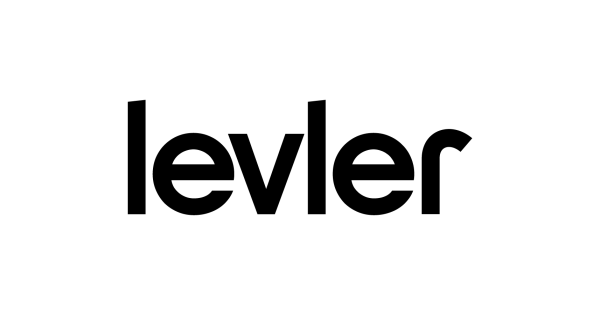
Fees:
- Commission-Free Trading: All trades on Nasdaq Stockholm (including First North) and US exchanges (Nasdaq and NYSE) are commission-free until March 2025.
- Post-March 2025 Pricing: Levler will offer trading fees that are 25% lower than traditional online brokers.
- Fund Fees: 25% discount on all fund management fees.
Offer:
Access over 2,000 funds with management fee discounts.
Trading Platforms:
- Web Application
- Mobile Application
- TradingView
- MetaTrader
- Cost-Effective Investing: Zero commission trades until March 2025 and a 25% discount on fund management fees ensure affordability for all investors.
- User-Centric Platform: Simplified digital tools, pre-packaged fund portfolios, and extensive stock and fund options cater to both beginners and experienced investors.
- Comprehensive Market Access: Trade on Swedish and US stock exchanges and choose from over 2,000 funds for diverse portfolio option
- Zero Commission Trades (Until March 2025):
- Commission-free trading for all trades on Nasdaq Stockholm, First North, Nasdaq, and NYSE.
- Post-2025, pricing remains competitive with a 25% fee reduction compared to online brokers.
- Extensive Fund Selection:
- Over 2,000 funds are available with a 25% discount on management fees.
- Pre-selected fund packages for investors looking for guidance.
- Digital Investment Experience:
- User-friendly digital platform for seamless fund and stock trading.
- Sorting features for stock searches, offering top lists and personalized suggestions.
- Targeted for All Investor Types:
- Ideal for beginners taking control of their savings and experienced investors looking for cost-effective, efficient platforms.
Levler is an innovative investment platform designed for cost-conscious and tech-savvy investors. Backed by Söderberg & Partners, Levler offers commission-free trading on major stock exchanges and discounted fund fees, making it accessible to a broad range of users. With a focus on user experience, Levler simplifies investing through curated fund packages, intuitive sorting tools, and personalized savings solutions. It aims to empower both novice and seasoned investors to take control of their financial future.
- Commission-Free Trading: No trading fees on Nasdaq Stockholm, First North, Nasdaq, and NYSE until March 2025.
- Low Fund Costs: 25% discount on all fund management fees.
- Extensive Fund and Stock Options: Access over 2,000 funds and major stock exchanges, including the US and Sweden.
- Beginner-Friendly Features: Simplified fund packages and intuitive digital tools make investing accessible for all.
- Limited Market Access: Trading is restricted to Nasdaq Stockholm, First North, Nasdaq, and NYSE, which may not cater to those seeking broader international exposure.
- Future Fee Introduction: Commission-free trading ends in March 2025, potentially impacting cost-sensitive users.
- No Advanced Tools: Platform lacks advanced trading features for highly active or professional traders.
View Terms & Conditions
Skandia

Fees:
- Swedish Securities:
- Trades up to 250,000 SEK: Fixed fee of 69 SEK per trade.
- Trades above 250,000 SEK: 0.15% commission, minimum 60 SEK.
- Spotlight Market, NGM, Nordic MTF:
- Trades up to 250,000 SEK: Fixed fee of 69 SEK per trade.
- Trades above 250,000 SEK: 0.15% commission, minimum 60 SEK.
- Foreign Securities:
- Nordic shares: 0.25%, minimum 199 SEK.
- US shares: $0.02 per share, minimum $49.
- Canadian shares: $0.02 per share, minimum $59 CAD.
- Other international shares: 0.40%, minimum 499 SEK.
Offer:
No active offer.
Trading Platforms:
- Web Application
- Mobile Application
- Infront
- TradingView
- Comprehensive Trading Options: Broad access to Swedish, Nordic, and international securities, including ETFs and bonds, for diversified portfolio building.
- Advanced Trading Platform: Skandia Trader offers real-time data and customizable trading tools for both casual and active investors.
- Cost Transparency: Clear and competitive fee structure for Swedish and foreign trades, fund transactions, and account transfers.
- Diverse Investment Options:
- Trade stocks, funds, bonds, ETFs, and other securities through a range of accounts (ISK, Värdepappersdepå, Kapitalförsäkring).
- Special focus on order-based trading for optimal fee structure.
- Real-Time Trading Tools:
- Access Skandia Trader for real-time quotes and custom dashboards.
- Choose full order depth for detailed analysis or limited depth for basic trading needs.
- Fund and Stock Transfers:
- Flexible transfer options to other institutions with clear fees for Swedish and foreign securities.
- Global Trading Access:
- Buy Nordic and international stocks via phone or supported online platforms.
- Competitive rates for global shares, with added transparency on currency conversion.
- Educational and Advisory Services:
- Tutorials and resources to help users learn trading fundamentals, risk management, and portfolio building.
- Advisory services for personalized recommendations.
Skandia is a financial institution providing robust trading and investment solutions tailored to diverse investor needs. It offers comprehensive services for Swedish and international markets, including stocks, funds, ETFs, and bonds. With tools like Skandia Trader and a focus on transparent pricing, Skandia caters to both beginner and active investors seeking efficiency and flexibility. The institution also emphasizes educational support and advisory services to help users make informed financial decisions.
- Wide Range of Investment Products: Includes Swedish, Nordic, and global securities, as well as ETFs, funds, and bonds.
- Real-Time Trading Tools: Skandia Trader enhances trading decisions with options for full or limited order depth.
- Transparent Pricing: Competitive and clear fee structures for both domestic and international trades.
- No Fund Transaction Fees: Free buying and selling of mutual fund shares.
- Flexible Account Options: Choose from ISK, Värdepappersdepå, or Kapitalförsäkring accounts for tailored savings and investment needs.
- High Minimum Fees for Some Trades: International trades carry higher minimum fees (e.g., 499 SEK for other global stocks).
- Monthly Cost for Full Order Depth: Advanced trading features in Skandia Trader require a monthly subscription of 69 SEK.
View Terms & Conditions
Handelsbanken
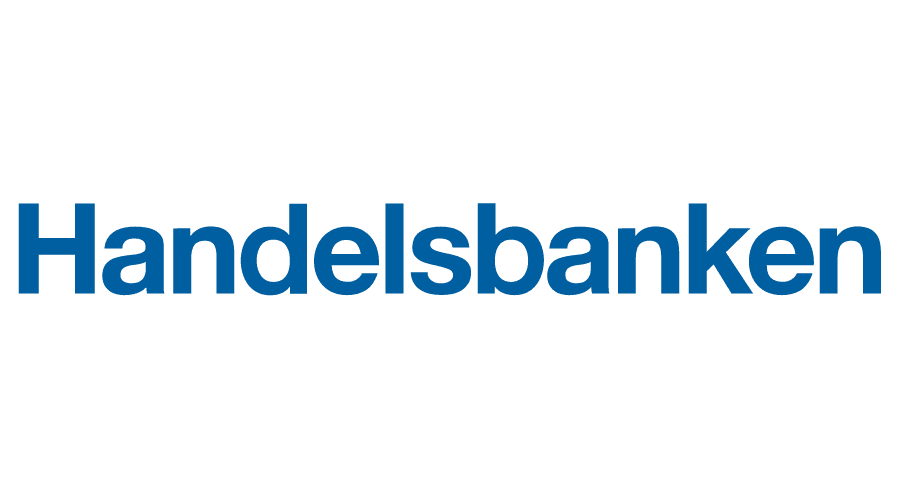
Fees:
- Swedish and Nordic Markets:
- Commission: 0.09%
- Minimum fee: 9 SEK per transaction
- Includes Stockholmsbörsen, NGM, First North, Oslo Börs, and Nasdaq OMX Nordic.
- Spotlight Market:
- Commission: 0.25%
- Minimum fee: 9 SEK per transaction
- International Markets:
- US Stocks:
- Commission: 0.09%
- Minimum fee: 29 SEK per transaction
- European Stocks:
- Commission: 0.09%
- Minimum fee: 59 SEK per transaction
- US Stocks:
Offer:
No active offer.
Trading Platforms:
- Handelsbanken Web Trader
- Mobile Application
- TradingView
- MetaTrader
- Tools for Active Investors: Handelsbanken Web Trader offers real-time data and customization for informed trading decisions.
- Focus on Education and Risk: Tutorials, real-time market insights, and diversification strategies empower investors to make informed and balanced decisions.
- Diverse Investment Products: Access a variety of securities, including Nordic stocks, global ETFs, and sustainable funds, for comprehensive portfolio building.
- Comprehensive Investment Options:
- Trade listed and unlisted securities, including stocks, ETFs, certificates, and bonds.
- Offers sustainable funds for environmentally conscious investors.
- Advanced Trading Tools:
- Handelsbanken Web Trader provides real-time data, customizable dashboards, and web-based trading for active investors.
- Educational Resources:
- Access tutorials, guides, and quizzes on stock trading fundamentals, risk management, and portfolio diversification.
- Market Insights:
- Dagsfärska analyses, real-time news, and market commentary available in the mobile app and online banking.
- Risk Management Emphasis:
- Guidance on diversification strategies and long-term investment approaches to minimize risks.
- Account Options:
- Flexible choices, including ISK for tax-efficient trading, Kapitalspar Depå for significant investments, and basic deposit accounts for general trading.
Handelsbanken is a financial institution offering a robust platform for savings and investments tailored to both beginner and active investors. It provides diverse account options, including ISK and Kapitalspar Depå, and supports trading in listed and unlisted securities across Nordic and international markets. With a focus on education and market insights, Handelsbanken equips users with tools like real-time analyses, sustainable funds, and web-based trading platforms, catering to a wide range of investment goals and risk appetites.
- Comprehensive Investment Range: Includes Nordic and international stocks, ETFs, sustainable funds, and unlisted securities.
- Advanced Trading Platforms: Handelsbanken Web Trader supports real-time data, customizable workspaces, and seamless execution for active traders.
- Educational and Market Insights: Offers beginner-friendly tutorials, quizzes, and access to expert analyses and market news in real-time.
- Flexible Account Types: Options like ISK for tax-efficient trading and Kapitalspar Depå for high-net-worth individuals.
- Sustainability-Focused Products: Large selection of funds aligned with environmentally responsible investing.
- Competitive Comparison: Competitors such as Avanza and Nordnet offer more robust digital platforms.
View Terms & Conditions
Nordea
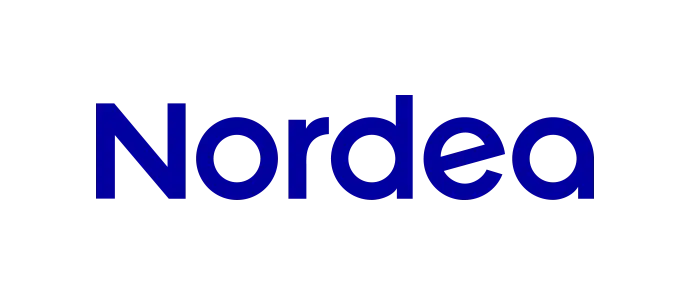
Fees:
- Swedish and Nordic securities: 0.09%, minimum 1 SEK, no maximum.
- Smaller exchanges (NGM, Spotlight): 0.09%, minimum 19 SEK, no maximum.
- International securities (UK, Germany, USA, etc.): 0.09%, minimum 29 SEK, no maximum.
Offer:
- Commission: As low as 1 SEK for Swedish securities.
Trading Platforms:
- Internet Application
- Mobile Application
- TradingView
- MetaTrader
- Support & Insights: Educational resources, professional advisory, and tools like the “Nora” savings robo
- Accessibility: Easy-to-use platforms and beginner-friendly guidance for starting investments with minimal amounts.
- Diverse Options: Wide range of investment products, including stocks, funds, and bonds, with options for risk diversification.
- Extensive Investment Options: Nordea provides a wide variety of investment products, including stocks, mutual funds, ETFs, bonds, structured products, and tax-efficient accounts like ISK (Investeringssparkonto) and Kapitalförsäkring. This diversity allows investors to build tailored portfolios suited to their financial goals.
- Educational Resources and Tools: Beginners and experienced investors can benefit from Nordea’s educational resources, such as the “Aktieskola” (stock school) and guides on account types, risk management, and trading strategies. Advanced tools like fund selectors and portfolio management advice ensure informed decision-making.
- Global Market Access: Trade on 15+ major markets worldwide, including Nasdaq OMX, Oslo Börs, and major exchanges in the US, UK, and Europe. This enables investors to diversify geographically and tap into global opportunities.
- Advisory and Robo-Advisors: Personalized advisory services and tools like the “Nora” savings robot provide tailored recommendations based on individual goals and risk appetite. Whether users prefer hands-on management or automated advice, Nordea caters to both preferences.
- Flexible Savings Accounts: ISK and Kapitalförsäkring accounts offer benefits like tax efficiency, ease of fund reallocation, and options for long-term savings, including pensions and child savings.
- Cost-Effective Trading: Commission rates start at 0.09%, with a minimum of 1 SEK for Swedish securities. These competitive rates make Nordea a viable option for both small and large investors.
- Convenience Across Platforms: The mobile app and online banking system ensure seamless and intuitive trading experiences, with features like real-time data, multi-account management, and notifications to keep users updated on market trends.
Nordea offers a comprehensive platform for savings and investments, catering to beginners and experienced investors. Its services include tax-efficient accounts, diverse investment products, and real-time access to over 15 global markets. The platform emphasizes education, risk management, and user accessibility, with minimal barriers to entry for small investors. Tools like their mobile app and the “Nora” advisory robot enhance user experience by providing tailored financial insights.
- Low Fees for Swedish Securities: Nordea offers one of the market’s lowest commission rates for Swedish securities, starting at just 1 SEK, making it attractive for cost-conscious investors.
- Access to Global Markets: Investors can trade on over 15 international markets, including the US, UK, and Europe, providing opportunities to diversify portfolios geographically.
- Diverse Investment Options: From stocks and ETFs to bonds and structured products, Nordea caters to various investment preferences and risk levels, ensuring something for every type of investor.
- User-Friendly Platforms: Both the online banking and mobile app are designed with ease of use in mind, making them suitable for beginners and experienced investors alike.
- Educational and Advisory Support: Tools like the “Aktieskola” (stock school), the “Nora” savings robot, and access to financial advisors empower users with knowledge and personalized recommendations.
- International Trade Fees: Minimum fees for international transactions (e.g., 29 SEK) can be costly for smaller trades and may deter frequent low-value trading.
- Additional Taxes for Some Markets: Stamp duty/FTT charges on trades in specific countries (UK, France, Italy, Spain) can increase costs for international investors.
- Limited Advanced Tools: While comprehensive, some tools may lack the sophistication needed for very advanced or institutional traders.
View Terms & Conditions
Swedbank
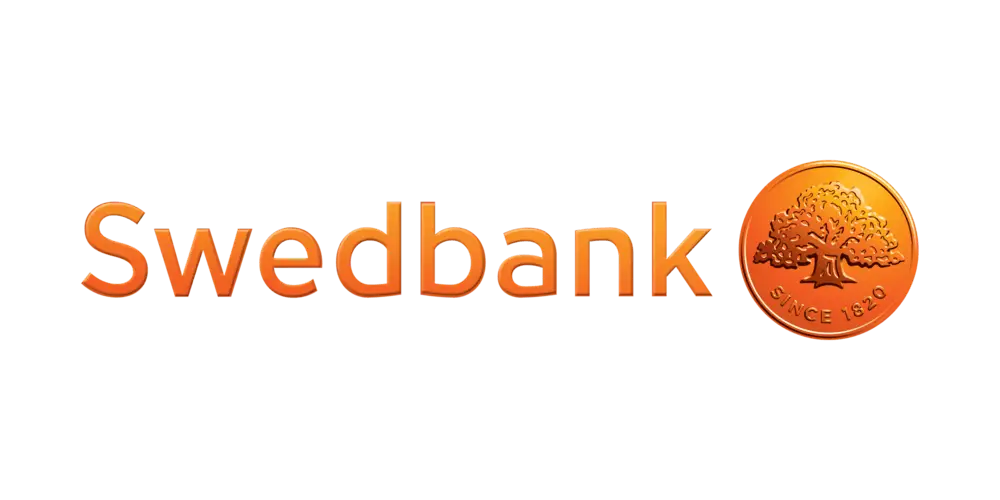
Fees:
- Three fixed pricing tiers: 29 SEK, 59 SEK, and 99 SEK per trade.
- Commission-free trades: For total savings under 100,000 SEK, the first 500 trades are commission-free.
Offer:
- 0 SEK trading fees: On select assets when total portfolio value is less than 100,000 SEK.
Trading Platforms:
- Web Application
- Mobile Application
- TradingView
- MetaTrader 4/5
- User-Friendly Platform: Benefit from easy-to-use online banking and a mobile app.
- Diverse Investment Options: Access ISAs, mutual funds, stocks, and bonds for flexible savings and investment opportunities.
- Support and Insights: Gain market analysis, educational resources, and personalized financial advice.
- Various savings and investment options: ISAs, mutual funds, stocks, and bonds.
- User-friendly online banking and mobile app.
- Comprehensive market analysis and research tools.
- Educational resources: Including guides and webinars.
- Personalized financial advice.
Swedbank offers a wide range of investment options, including savings accounts, mutual funds, stocks, and bonds. The platform is designed for ease of use, with an intuitive online banking system and mobile app. Swedbank provides extensive market analysis tools, educational resources, and personalized financial advice to help users make informed investment decisions.
- Wide Range of Options: Offers diverse investment opportunities, including savings accounts, mutual funds, stocks, and bonds, catering to different financial goals.
- User-Friendly Platforms: The online banking system and mobile app are intuitive and easy to use, enhancing the user experience.
- Comprehensive Resources: Provides extensive educational materials, market analysis, and personalized financial advice, supporting informed decision-making.
- Personalized Service: Offers personalized financial advice, ensuring tailored investment strategies for individual needs.
- Fees and Costs: Some investment options and personalized services may have associated fees, which could impact overall returns.
View Terms & Conditions
Pareto Securities

Fees:
- Start: 0.030% fee, 39 SEK minimum, for the first 3 months.
- Passive: 0.089% fee, 89 SEK minimum, for long-term investors.
- Premium: 0.059% fee, 59 SEK minimum, for portfolios over 1 million SEK.
- Private Banking: 0.049% fee, 49 SEK minimum, for portfolios over 5 million SEK.
- Pro: 0.030% fee, 39 SEK minimum, with a 2,000 SEK/month commission requirement.
Offer:
- Monthly Portfolio: Pareto offers a model portfolio updated monthly, providing insights into recommended Nordic stocks.
- Capital Market Access: Pareto Securities clients can access IPOs, bond issues, and other exclusive opportunities.
Trading Platforms:
- Infront Web Trader
- Infront Active Trader
- MetaTrader 4
- MetaTrader 5
- Comprehensive Market Insights: Access in-depth research on 300+ Nordic companies and real-time market data.
- Global Trading Opportunities: Trade in 80% of global markets with diverse products like stocks, bonds, and ETFs.
- Exclusive Services: Benefit from personalized advisory and access to IPOs, capital raisings, and private placements.
- Extensive Research: Pareto offers fundamental analysis on more than 300 Nordic companies, supporting informed investment decisions.
- Advanced Trading Platforms: The platform includes powerful tools for professional trading, including algorithmic trading options and real-time market data.
- Global Market Access: Trade in 80% of the world’s capital markets, with access to stocks, bonds, ETFs, and structured products.
- Personalized Advisory: Clients have access to a team of experienced brokers, offering professional advice on both technical and market-related questions.
- Access to IPOs and Capital Raisings: Participate in stock market listings, capital raisings, and private placements across Nordic and international markets.
Pareto Securities offers a complete trading solution tailored for both private investors and institutions. The platform provides access to a wide range of financial instruments, including stocks, bonds, ETFs, and unlisted securities. With advanced trading tools, extensive market analysis, and personal broker support, Pareto Securities ensures a professional trading experience. The platform also supports participation in IPOs and other exclusive transactions.
- Strong Nordic Focus: Pareto provides deep insight into the Nordic markets, supported by expert research and analysis.
- Comprehensive Trading Solutions: Offers sophisticated trading platforms for both retail and institutional investors, including algorithmic trading options.
- Personalized Service: Pareto Securities provides dedicated brokers to assist with customized investment strategies and in-depth advisory services.
- Access to Exclusive Investment Opportunities: Investors can participate in Nordic IPOs, private placements, and bond issues.
- Geared Towards Active Traders: The platform is designed for more experienced investors and may be too complex for beginners.
View Terms & Conditions
Nordnet

Fees:
- Commission-Free Trading: 0 SEK fees for stocks and funds up to 50,000 SEK.
- Diverse Investments: Access to stocks, ETFs, funds, and more for portfolio growth.
- Savings & Community: Competitive 2.85% savings account interest and Shareville investor network.
Offer:
Receive rebates on management fees for funds up to 50,000 SEK.
Trading Platforms:
- Infront
- Nordnet One
- MetaTrader 4
- MetaTrader 5
- Cost-Effective Trading: Commission-free trading on stocks and funds for portfolios up to 50,000 SEK.
- Diverse Investment Options: Trade in a broad range of assets, including stocks, ETFs, and funds.
- Savings and Community: Competitive 2.85% interest on savings accounts and access to the Shareville investor network.
- No fees on trading stocks and funds up to 50,000 SEK: For beginners or investors with smaller amounts, Nordnet offers 0 SEK commission on stocks and fund trades up to 50,000 SEK.
- Wide Range of Investment Products: Investors can trade in stocks, ETFs, funds, and other financial products, offering significant diversity for portfolio building.
- Savings Account with Competitive Interest Rates: Offers a savings account with a 2.85% interest rate and free withdrawals, making it appealing for more conservative investors.
- Community: Large community of investors on the Shareville platform.
Nordnet is a prominent online brokerage in Sweden offering a wide array of investment options, including stocks, funds, ETFs, and options. The platform is designed for ease of use and provides robust market analysis and educational resources. Nordnet also emphasizes low fees and offers social trading features through its Shareville community, allowing users to share insights and strategies.
- Low Fees: Competitive pricing and low fees make it accessible and cost-effective for traders of all levels.
- Comprehensive Tools: Provides extensive market analysis and research tools, aiding informed investment decisions.
- User-Friendly Platforms: Intuitive web and mobile platforms ensure ease of use for both beginners and experienced investors.
- Educational Resources: Offers a wealth of educational materials, including guides, webinars, and tutorials, enhancing investor knowledge.
- Social Trading: The Shareville community feature allows users to engage in social trading, sharing insights and strategies with other investors.
- Limit of 500 trades per year for 0 SEK commission: This might not be sufficient for very active traders.
- Potential fees on larger portfolios: Commission is applicable for amounts above 50,000 SEK.
View Terms & Conditions
Avanza
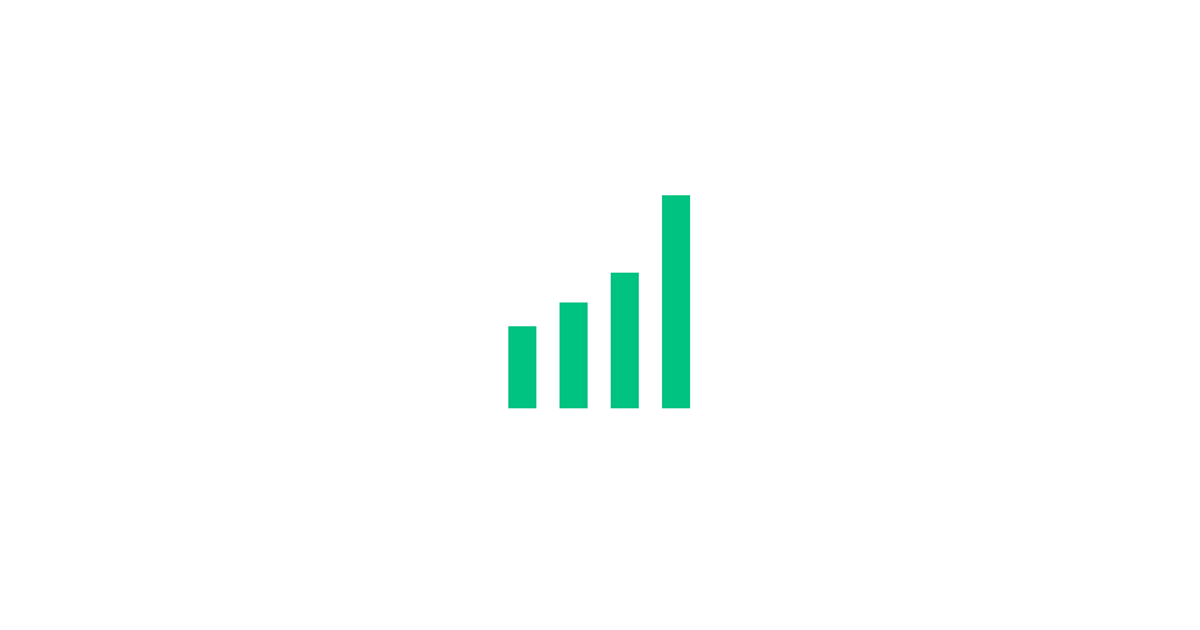
Fees:
Avanza offers five pricing tiers (“courtageklasser”) for trading on the Stockholm Stock Exchange, tailored to different trading levels:
- Start: 0 SEK per order; 100% fund fee refund.
- Mini: 1 SEK for trades up to 400 SEK; 0.25% for higher amounts. Best for trades up to 15,600 SEK.
- Small: 39 SEK for trades up to 26,000 SEK; 0.15% for larger amounts. Best for trades between 15,600–46,000 SEK.
- Medium: 69 SEK for trades up to 100,000 SEK; 0.069% for higher amounts. Best for trades between 46,000–143,500 SEK.
- Fixed Price: 99 SEK per order, no variable fees. Best for trades above 143,500 SEK.
For international trades and smaller exchanges (e.g., Spotlight, NGM), fees start at 19 SEK per trade.
Offer:
Receive rebates on management fees for funds up to 50,000 SEK.
Trading Platforms:
- TradingView
- Infront
- MetaTrader 4
- MetaTrader 5
- Diverse Investment Options: Access a wide range of assets, including stocks, ETFs, bonds, and tax-efficient accounts like ISK.
- Cost Efficiency: Enjoy commission-free trading on Swedish stocks and fund fee refunds for portfolios up to 50,000 SEK.
- Comprehensive Tools: Benefit from real-time data, research tools, and a user-friendly mobile app for informed and seamless investing.
- Broad Range of Assets: Access to stocks, ETFs, mutual funds, bonds, and various savings products. Investors can also use tax-efficient accounts like ISK (Investeringssparkonto).
- Commission-Free Trading: Avanza offers commission-free trading on Swedish stocks and returns management fees on funds for portfolios up to 50,000 SEK.
- Real-Time Data and Research: The platform provides investors with research reports, stock screeners, and real-time market data, empowering users to make informed decisions.
- Pension Savings: Avanza also allows users to manage their pensions, offering tools to consolidate pension savings for better control and growth.
- User-Friendly Mobile App: A highly rated mobile app with features like personalized notifications and an easy-to-navigate interface.
Avanza is a leading Swedish online brokerage offering a wide range of investment options, including Swedish and international stocks, funds, ETFs, and options. The platform is designed to be user-friendly and accessible, providing advanced market analysis tools and comprehensive research. Avanza emphasizes low fees and competitive pricing, making it an attractive option for both novice and experienced investors. The platform also offers extensive educational resources to help users make informed investment decisions.
- Fee Rebates: For portfolios with a value of up to 50,000 SEK, Avanza will return management fees on funds.
- High Customer Satisfaction: Avanza has won numerous awards for customer satisfaction, being ranked as Sweden’s most favored brokerage for over a decade.
- Comprehensive Educational Resources: Ideal for new investors, Avanza provides a wealth of educational content, including webinars, podcasts, and investment guides.
- Wide Range of Investment Options: In addition to traditional stocks and ETFs, Avanza offers a range of pension products and savings options for Swedish investors.
- Limited Product Selection: Some trading instruments are not available on Avanza, such as CFDs. Instead, other exchange-traded products are available, such as bear and bull certificates as well as mini futures.
- Options: For users looking to trade options, a credit evaluation is necessary. This is the case for options strategies that have limited max losses. Other platforms only require credit evaluations for engaging in options strategies with theoretically unlimited loss potential.
View Terms & Conditions
Frequently Asked Questions
A brokerage account is an investment account that allows you to buy and sell a variety of investments, such as stocks, bonds, mutual funds, and ETFs. Brokerage accounts are offered by brokerage firms, and the firm acts as an intermediary between you and the stock market.
Choosing a brokerage account depends on your investment goals, experience level, and the types of assets you want to trade. Consider factors like commission fees, account minimums, trading platforms, research tools, and customer service when making your decision.
Common fees include trading commissions, account maintenance fees, inactivity fees, and fees for additional services like wire transfers or paper statements. It’s essential to review the fee structure of a brokerage before opening an account to understand the total cost of investing.
Comparing broker accounts is useful because it helps you find the best fit for your investment needs and goals. Different brokers offer varying features, fee structures, and levels of service. By comparing options, you can identify a broker that offers the best combination of low fees, robust tools, excellent customer service, and the specific features you need for your trading strategy.
Some broker accounts are better than others because they offer superior features, lower costs, better customer support, or more comprehensive research tools. The best broker for you depends on your individual needs, such as whether you are a beginner looking for educational resources or an advanced trader needing sophisticated trading platforms. Evaluating factors like commission rates, ease of use, account minimums, and the availability of different investment products can help determine which broker is superior for your situation.
Yes, many Swedish brokers offer the ability to trade international stocks. For example:
- Avanza and Nordnet: Both brokers provide access to a wide range of international markets, allowing you to diversify your portfolio with global investments.
- Interactive Brokers: Known for its extensive market access, it offers Swedish investors the opportunity to trade on numerous international exchanges.
Transfer fees vary by broker, but here are some common scenarios:
- Outgoing Transfer Fees: Some brokers charge a fee for transferring assets out of your account. Check with your current broker for details.
- Incoming Transfer Fees: Most brokers do not charge a fee for incoming transfers, but it’s always best to confirm with your new broker.
- Other Fees: There may be additional fees for transferring specific types of assets or for expedited processing.
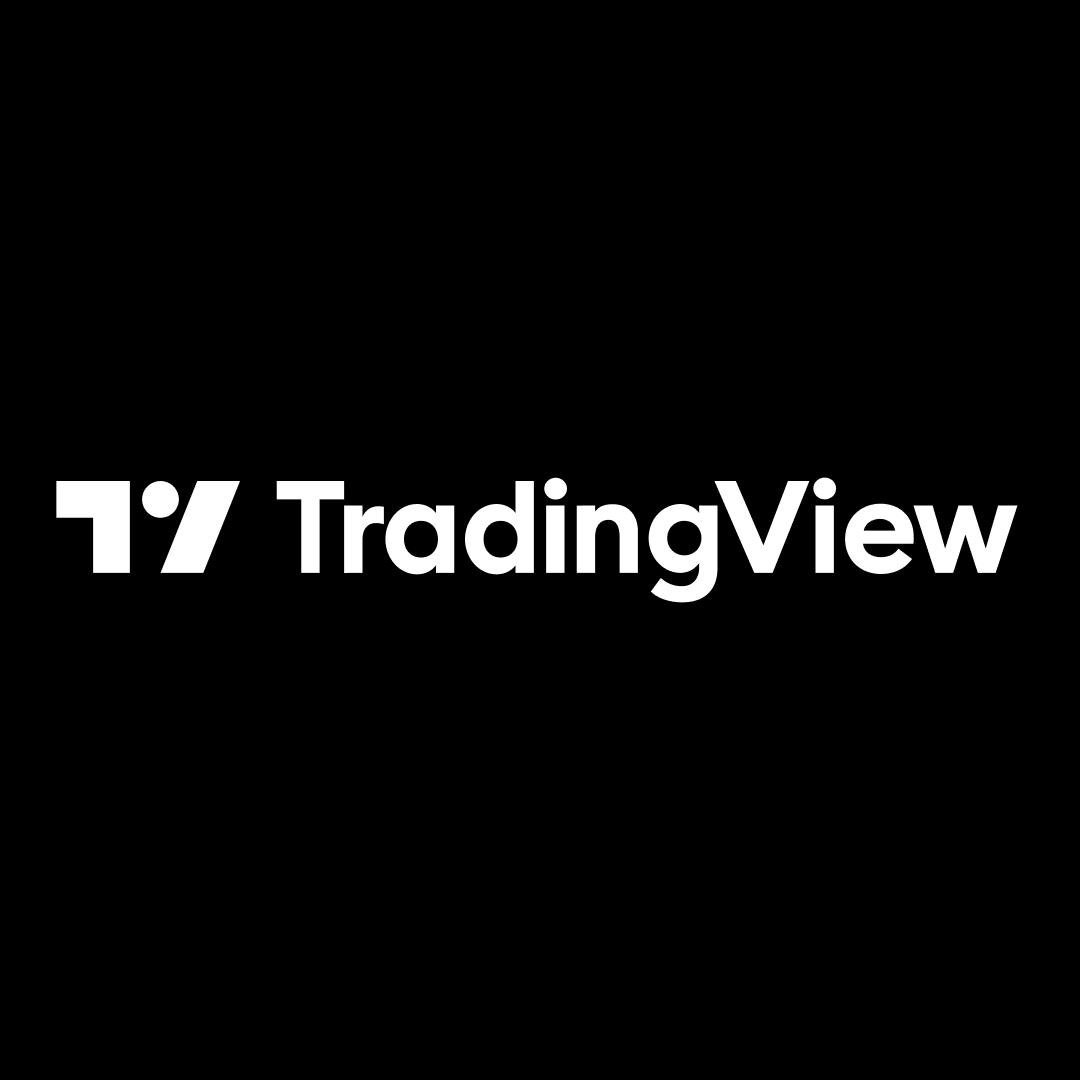
View Trading Platforms
Explore and compare popular trading platforms, such as TradingView, MetaTrader 4, and many more.
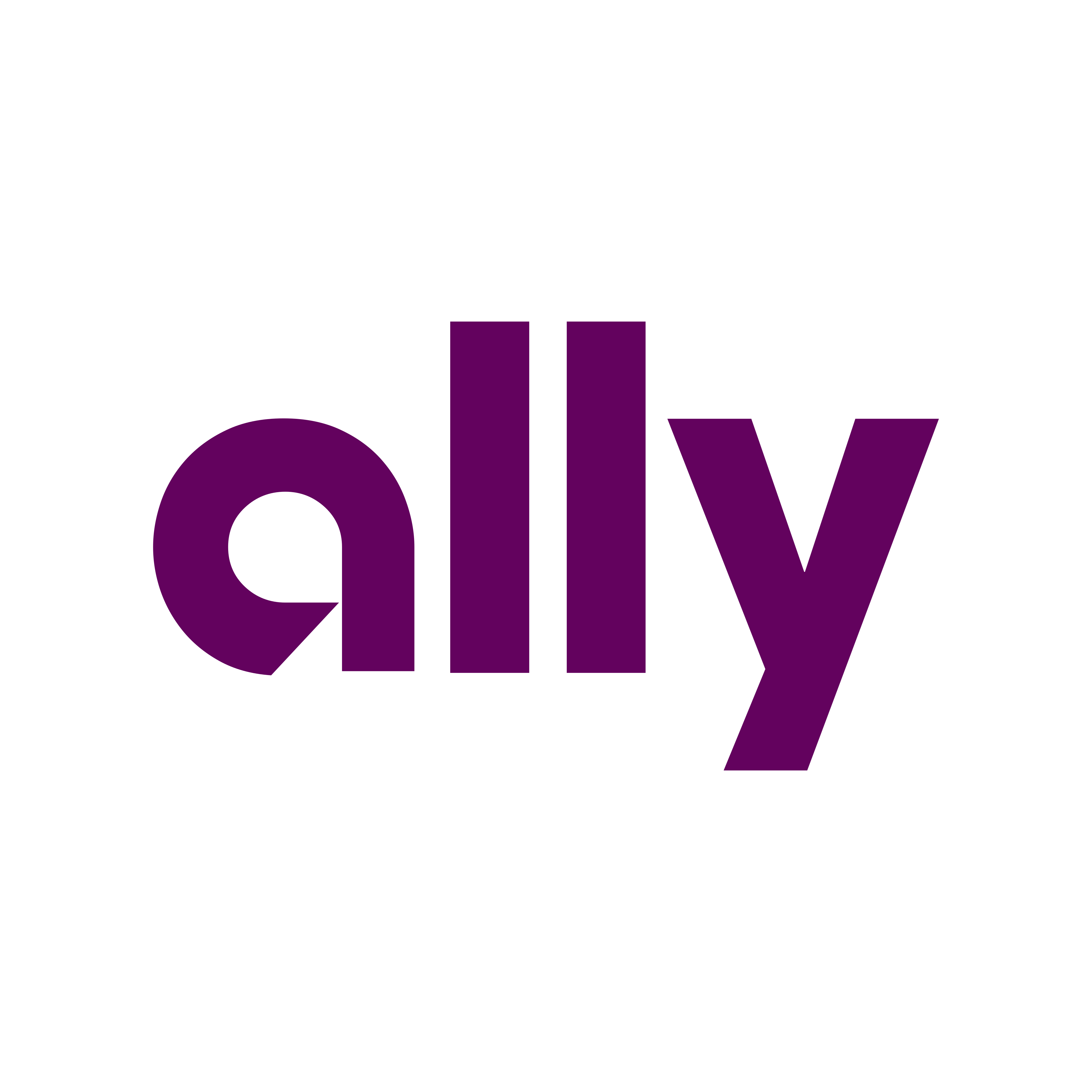
View All Brokerage Accounts
View brokerage accounts to get an overview of features, fees, and more.
How to Choose the Best Brokerage Account in Sweden
Choosing the right brokerage account is a crucial decision that can impact your investment success. Investors should evaluate key factors like trading activity, costs, and the platform’s features to ensure the account meets their needs. Below is a guide to help you identify the best brokerage account based on specific criteria.
1. Consider Your Trading Activity
Your level of trading activity should determine the type of account you choose:
- Frequent Traders: Look for platforms like Avanza or Pareto Securities, which offer tiered pricing models. These accounts reduce fees as trading volume increases, making them cost-efficient for active investors.
- Casual Traders: Choose providers like Nordnet or Swedbank. These platforms offer simple pricing, with Nordnet even providing commission-free trades for portfolios up to 50,000 SEK.
- Long-Term Investors: Platforms like Nordea and Handelsbanken cater to long-term strategies with ISK accounts for tax efficiency and sustainable investment options.
2. Analyze Costs and Fees
Fees significantly affect your returns, so it’s essential to understand each provider’s cost structure:
- Commission-Free Options: Nordnet and Levler offer no-fee trading for smaller portfolios, ideal for beginners.
- Percentage-Based Fees: Nordea and Pareto Securities charge low percentage fees for large trades, benefiting investors with higher portfolios.
- Flat Fees: Swedbank’s fixed fees (29 SEK, 59 SEK, or 99 SEK per trade) provide transparency and predictability.
3. Evaluate Investment Options
Different platforms provide access to varying asset classes:
- Diverse Portfolios: Avanza and Nordea support stocks, ETFs, mutual funds, bonds, and savings products, allowing for a well-rounded portfolio.
- Global Market Access: Pareto Securities and Nordea offer international trading on major exchanges, making them ideal for diversification.
- Sustainable Investing: Handelsbanken and Nordea emphasize ESG-compliant funds for environmentally conscious investors.
4. Assess Platform Features
Modern platforms provide tools that enhance the investing experience:
- Research Tools: Pareto Securities excels with fundamental analysis for over 300 Nordic companies, while Nordea offers educational resources like the “Aktieskola.”
- User-Friendly Interfaces: Avanza and Levler offer intuitive apps with personalized notifications and portfolio trackers.
- Community and Support: Nordnet’s Shareville allows users to connect with fellow investors and share insights.
5. Check for Tax-Efficient Accounts
Tax considerations play a significant role in investment outcomes:
- ISK Accounts: Most Swedish platforms, including Avanza, Nordnet, and Handelsbanken, offer ISK accounts for tax-efficient trading.
- Kapitalförsäkring: Nordea provides this option for flexible long-term savings, including pensions.
Key Takeaways
- Match your trading activity with the provider’s pricing model. Frequent traders should focus on tiered fees, while casual investors benefit from simpler structures.
- Prioritize platforms that align with your investment goals, such as diverse portfolios or sustainable funds.
- Evaluate tools and resources offered by the platform, ensuring they meet your need for education, research, or community support.
Common features of broker accounts include:
- Trading Platforms: Tools and software for executing trades and analyzing the market.
- Commission Rates: Fees charged for buying and selling securities.
- Account Minimums: The minimum amount required to open or maintain an account.
- Research and Educational Resources: Access to market research, news, and educational content.
- Customer Support: Availability of support through phone, email, or live chat.
- Investment Options: Variety of assets available for trading, such as stocks, bonds, ETFs, options, and cryptocurrencies.
The Investeringssparkonto (ISK) is a popular investment account in Sweden due to its tax advantages:
- Tax Benefits: With an ISK, you pay a low, flat-rate tax on the value of your investments rather than on capital gains and dividends. This can simplify tax reporting and potentially reduce your tax burden.
- Ease of Use: An ISK is easy to manage, with no need to report individual transactions to the tax authorities.
- Flexibility: You can invest in a wide range of assets, including stocks, mutual funds, and ETFs.
Transferring your existing brokerage account to a new broker typically involves the following steps:
- Open a New Account: Open an account with the new broker and complete the necessary verification processes.
- Request a Transfer: Contact your new broker and request a transfer of your existing account. You will need to provide details of your current account and holdings.
- Wait for Transfer Completion: The transfer process can take several days to a few weeks, depending on the brokers involved. Your new broker will coordinate with your current broker to move your assets.
Commission-Free Trading
Commission-free trading has gained popularity among brokerage platforms, offering investors a cost-effective way to manage their portfolios. However, understanding the benefits and limitations of commission-free structures is crucial.
1. What Does Commission-Free Trading Mean?
Commission-free trading eliminates fees per trade, allowing investors to buy and sell assets without incurring additional costs. However, other fees, such as currency conversion or fund management fees, may still apply. It is essential to check the fine print to ensure there are no hidden costs.
- Nordnet: Offers zero commission on stocks and funds for portfolios up to 50,000 SEK, making it ideal for beginners and small investors.
- Levler: Provides commission-free trades on Nasdaq Stockholm, First North, Nasdaq, and NYSE until March 2025.
2. Who Benefits Most from Commission-Free Trading?
Commission-free structures are particularly beneficial for specific types of investors:
- Beginners: Those starting with small portfolios save on costs, allowing them to focus on learning the market.
- Low-Volume Traders: Investors who trade occasionally avoid cumulative fees, keeping their overall costs low.
- Cost-Conscious Investors: Individuals with limited budgets can maximize their investments without worrying about fees eroding their returns.
3. Understanding Limitations of Commission-Free Models
While commission-free trading removes per-trade fees, it may have restrictions:
- Levler’s Timeline: Commission-free trading is only available until March 2025. Post-2025, Levler will charge fees that are 25% lower than traditional brokers.
- Other Costs: Platforms may apply fees for currency conversion, fund transfers, or account services. For example, trading foreign securities may still incur taxes or exchange rate costs.
4. Comparing Commission-Free Providers
- Nordnet: Best for small portfolios and beginners due to its straightforward, no-commission policy for up to 50,000 SEK.
- Levler: Ideal for investors looking to trade on Swedish and US exchanges without fees until 2025. It also offers a 25% discount on fund management fees for diversified portfolios.
Key Takeaways
- Commission-free trading reduces upfront costs, making it an excellent choice for beginners and low-volume traders.
- Nordnet and Levler stand out as leading commission-free platforms in Sweden, each catering to different investment styles.
- Understanding additional fees, time-limited offers, and applicable restrictions ensures you maximize the benefits of commission-free trading.
By leveraging commission-free accounts, investors can save on costs and reinvest more of their capital into growth opportunities. However, carefully evaluating the terms and conditions ensures you make an informed and profitable choice.
Have you tried our AI comparison tool?
Use our AI powered chat assistant to easily get an overview of brokerage accounts. Access it Here.
Summary

Levler
Levler is an innovative investment platform designed for cost-conscious and tech-savvy investors. Backed by Söderberg & Partners, Levler offers commission-free trading on major stock exchanges and discounted fund fees, making it accessible to a broad range of users. With a focus on user experience, Levler simplifies investing through curated fund packages, intuitive sorting tools, and personalized savings solutions. It aims to empower both novice and seasoned investors to take control of their financial future.

Skandia
Skandia is a financial institution providing robust trading and investment solutions tailored to diverse investor needs. It offers comprehensive services for Swedish and international markets, including stocks, funds, ETFs, and bonds. With tools like Skandia Trader and a focus on transparent pricing, Skandia caters to both beginner and active investors seeking efficiency and flexibility. The institution also emphasizes educational support and advisory services to help users make informed financial decisions.

Handelsbanken
Handelsbanken is a financial institution offering a robust platform for savings and investments tailored to both beginner and active investors. It provides diverse account options, including ISK and Kapitalspar Depå, and supports trading in listed and unlisted securities across Nordic and international markets. With a focus on education and market insights, Handelsbanken equips users with tools like real-time analyses, sustainable funds, and web-based trading platforms, catering to a wide range of investment goals and risk appetites.

Nordea
Nordea offers a comprehensive platform for savings and investments, catering to beginners and experienced investors. Its services include tax-efficient accounts, diverse investment products, and real-time access to over 15 global markets. The platform emphasizes education, risk management, and user accessibility, with minimal barriers to entry for small investors. Tools like their mobile app and the “Nora” advisory robot enhance user experience by providing tailored financial insights.

Swedbank
Swedbank offers a wide range of investment options, including savings accounts, mutual funds, stocks, and bonds. The platform is designed for ease of use, with an intuitive online banking system and mobile app. Swedbank provides extensive market analysis tools, educational resources, and personalized financial advice to help users make informed investment decisions.

Pareto Securities
Pareto Securities offers a complete trading solution tailored for both private investors and institutions. The platform provides access to a wide range of financial instruments, including stocks, bonds, ETFs, and unlisted securities. With advanced trading tools, extensive market analysis, and personal broker support, Pareto Securities ensures a professional trading experience. The platform also supports participation in IPOs and other exclusive transactions.

Nordnet
Nordnet is a prominent online brokerage in Sweden offering a wide array of investment options, including stocks, funds, ETFs, and options. The platform is designed for ease of use and provides robust market analysis and educational resources. Nordnet also emphasizes low fees and offers social trading features through its Shareville community, allowing users to share insights and strategies.

Avanza
Avanza is a leading Swedish online brokerage offering a wide range of investment options, including Swedish and international stocks, funds, ETFs, and options. The platform is designed to be user-friendly and accessible, providing advanced market analysis tools and comprehensive research. Avanza emphasizes low fees and competitive pricing, making it an attractive option for both novice and experienced investors. The platform also offers extensive educational resources to help users make informed investment decisions.
Disclaimer
The content provided is for educational purposes only and should not be considered financial advice. Always verify details, fees, and features directly with the service provider before making any decisions.